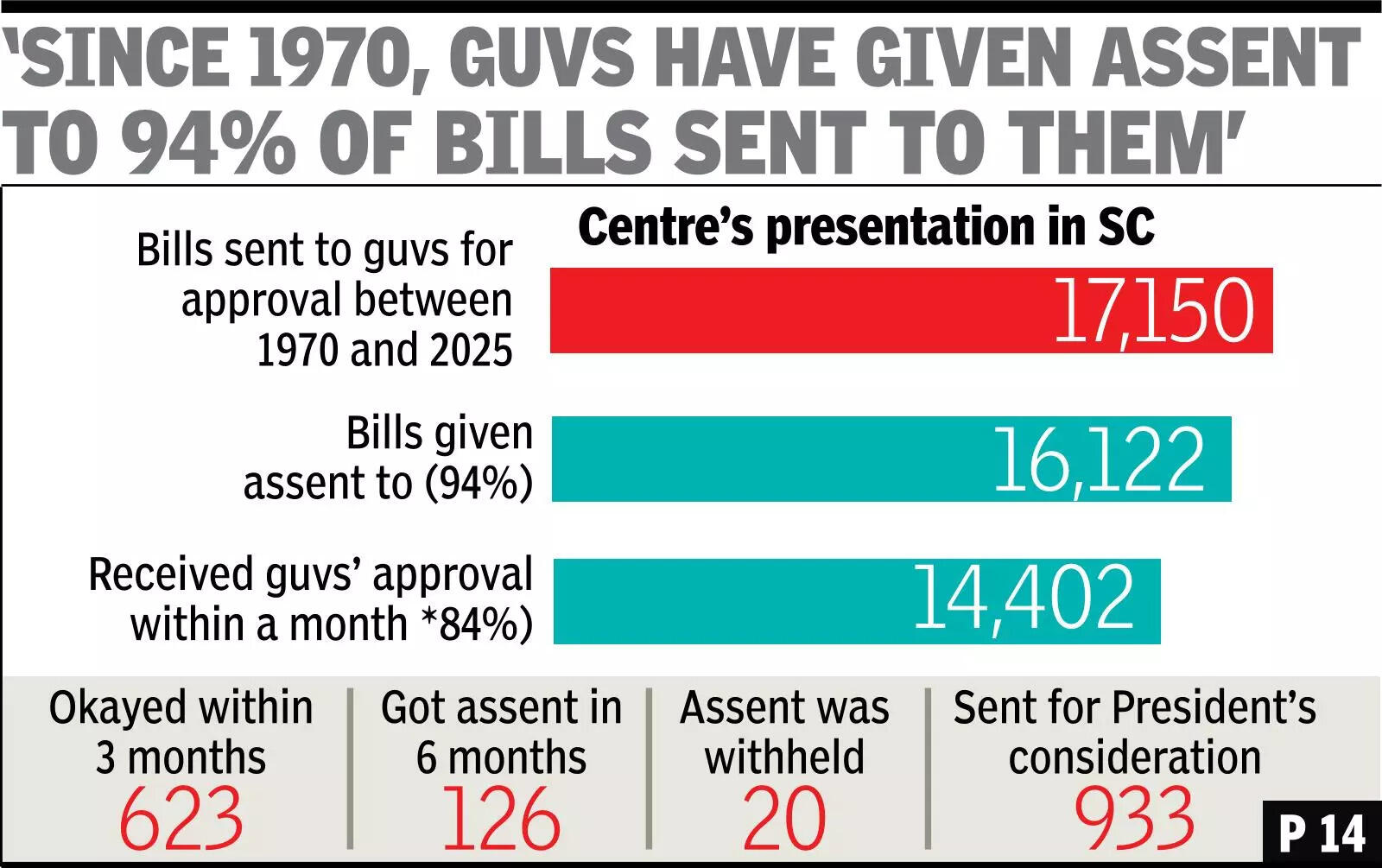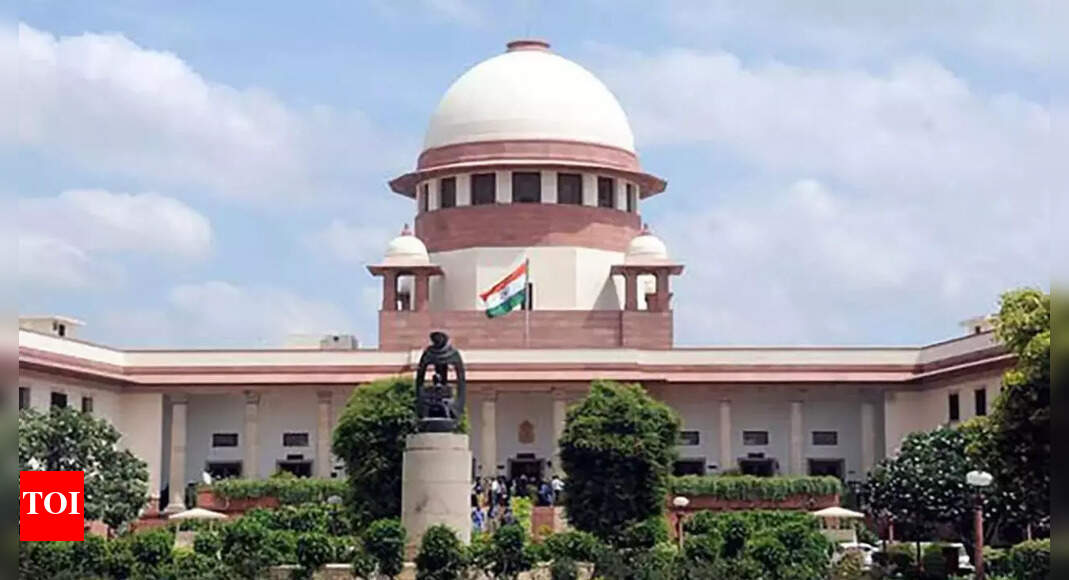NEW DELHI: Centre on Wednesday agreed with opposition-led states that governors can not sit down over a invoice indefinitely however argued sooner than the Ideally suited Court docket that the Charter had vested in them the discretion to make a decision whether or not to grant or withhold assent to regulation, go back it with ideas to the meeting or save it for the President’s attention.Responding to opposition-led states’ insistence {that a} governor, being simply a decorative head, can not select any of the choices with out the help and recommendation of the council of ministers, solicitor normal (SG) Tushar Mehta stated a fallacious political canvas has been offered in court docket to steer it to transgress Parliament’s area and amend constitutional provisions associated with governors’ powers to cause them to rubber stamps by the hands of state govts.Whilst Parliament might amend the Charter underneath Article 368 (topic to the elemental construction), the judiciary’s function is confined to interpretation. If courts had been to increase the which means of a provision past its textual or structural limits, it will confer upon the judiciary an influence identical to Parliament, a end result no longer envisaged by means of the framers (of the Charter). Any such direction could be opposite to the constitutional scheme,” Mehta advised a bench of CJI B R Gavai and Justices Surya Kant, Vikram Nath, P S Narasimha and A S Chandurkar.After 9 days of a riveting constitutional debate at the state-governor spat over expenses, the SC’s April 8 choice solving timelines for governors and the President, adopted by means of a Presidential Reference flagging powers of the apex court docket, Mehta stated the Centre agreed with Kerala executive {that a} governor and a state executive will have to paintings collaboratively via consultati-on, with the previous appearing as a pal, thinker and information for the council of ministers.

He added that the SC used to be no longer the headmaster of polity to deal with each and every possible factor raised by means of states which basically belong to the political area and which might be resolved via session a number of the PM, CM and ministers with the governor, or the President.This has been the apply in Indian polity as a result of which democracy has grown more potent and the constitutional provisions, together with their interpretations by means of SC, are adopted scrupulously. He stated since 1970, governors of states were offered with 17,150 expenses, of which assent used to be withheld in most effective 20 expenses.He stated 933 expenses were reserved for President’s attention by means of governors, who granted assent to 16,122 (94%) of the expenses – 14,402 of the nods coming inside a month, 623 inside 3 months, 126 in six months and the remainder thereafter.Paying tribute to the framers of the Charter for giving the governor the suitable to withhold assent to a invoice, one thing termed by means of opposition-led states as subversion of the desire of the folk expressed via legislature, Mehta cited the instance of the invoice that the Punjab meeting handed in 2004 to terminate its water-sharing settlement with Haryana, Himachal Pradesh and Delhi.Will have to the governor, whom some states time period an insignificant rubber stamp by the hands of the council of ministers, have granted assent to this kind of invoice that might have adversely impacted inter-state, federal and India-Pakistan family members, the SG requested.The governor reserved this invoice for attention of the President, who, in flip, despatched a reference in quest of SC’s opinion at the legality of unilateral annulment of water-sharing agreements, he stated, including that during his view governors in such eventualities are entitled to withhold assent to offer protection to the constitutional scheme of quasi-federal governance. Arguments will conclude Thursday.

